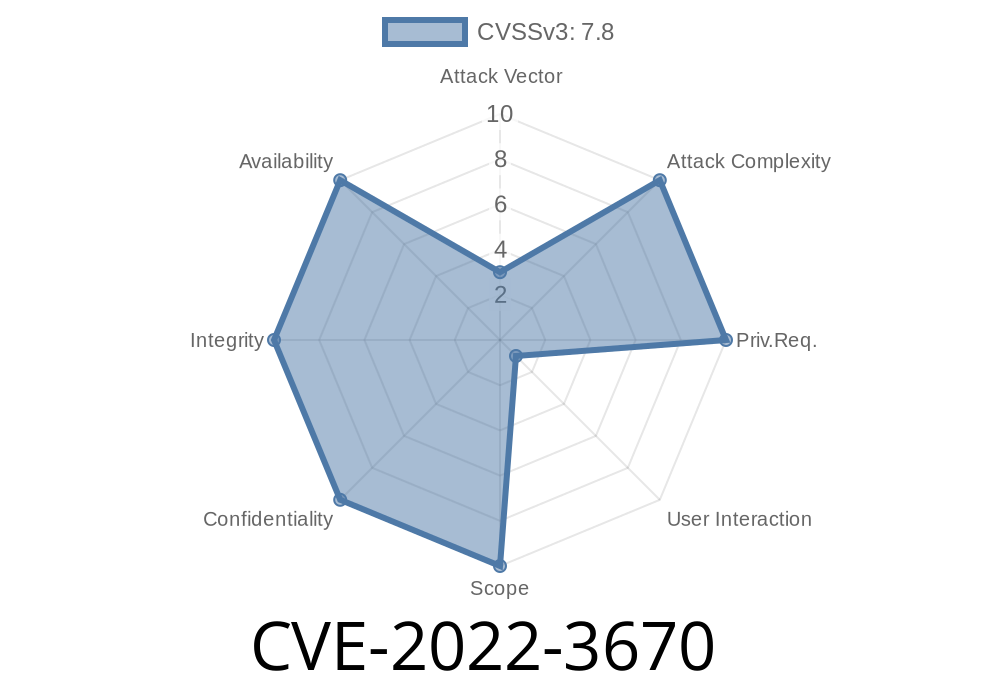A critical vulnerability has been discovered in Axiomatic Bento4, an open-source multimedia framework commonly used for processing media formats. If exploited successfully, this vulnerability can lead to a heap-based buffer overflow, which may allow a remote attacker to cause denial of service or execute arbitrary code on the affected system. Vulnerability Database (VDB) has assigned the identifier VDB-212010 to this security issue.
Vulnerability Details
The vulnerability is located in the WriteSample function of Bento4's mp42hevc component. The issue arises from improper handling of user-supplied input, which allows an attacker to manipulate the data and trigger a buffer overflow condition in the heap memory region. This critical vulnerability can be exploited remotely, and the exploit is already disclosed to the public. As a result, attackers could potentially use this vulnerability to compromise the integrity of systems running Bento4 software.
Code Snippet
AP4_Result AP4_mp42hevc_Writer::WriteSample(AP4_Sample& sample, AP4_DataBuffer& NSData) {
// ...
unsigned int data_size = sample.GetSize();
unsigned int sample_data_size = data_size + AP4_HEVC_NAL_UNIT_SIZE;
// Issue occurs here
unsigned char* sample_data = new unsigned char[sample_data_size];
// ...
}
In the above code snippet, the sample.GetSize() method retrieves the size of the sample data which might come from an untrusted source. This size value is used to allocate memory on the heap using the new operator, potentially leading to heap-based buffer overflow.
Original References and Exploits
The information about this vulnerability has been made public here. More details on the exploit and potential impact of CVE-2022-3670 can be found in this technical analysis conducted by a security researcher.
Mitigation
As of now, Axiomatic has not released any official patch or update to address this vulnerability. Users are encouraged to monitor the Bento4 Github repository for any announcements or patches regarding this issue. In the meantime, users should exercise caution when handling potentially untrusted media files in their Bento4 applications and should consider using alternative software or implementing proper input validation and data sanitization mechanisms.
Conclusion
CVE-2022-3670 is a critical heap-based buffer overflow vulnerability discovered in the WriteSample function of Axiomatic Bento4 mp42hevc component. Attackers may potentially exploit this to compromise the system remotely. Users who rely on Axiomatic Bento4 for media processing should keep an eye on the official channels for updates on this issue and apply the necessary patches as soon as they become available.
Timeline
Published on: 10/26/2022 19:15:00 UTC
Last modified on: 10/28/2022 15:22:00 UTC
